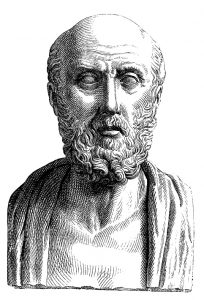
About 300 years before the time of Christ, there lived in Greece a man who was arguably the most famous person in the history of medicine. His intellectual school of medicine revolutionized the practice of the day. And his words have lived on even unto this day. They are the motto, if not the very oath, of the medical profession. The Oath of Hippocrates that we all know was not word for word in his writing. The exact words originated with a 19th century surgeon. The thought was always there in the words penned by this Greek physician, though.
First, do no harm.
This is my main consideration when I visit a hospice patient. No matter what else happens, and no matter what the purpose of my visit, I never want to leave the patient with anything but a positive experience. Whether I am writing their memoir, or just giving companionship. And I am not alone in acting this way. The Hippocratic Oath, as it is now called, is very much the motto of all hospice workers. That is because of what they do day after day.
Each and every day, hospice workers all strive to ease the pain of dying for patients, family and friends. Every day. It is their job.
That is why hospice is different from the rest of medical profession. It is not so much the place as the people that are different. Hospice professionals’ work is set apart in the field medicine: there are no painful or disturbing treatments. Hospice professionals focus on the quality, not the quantity–length–of life of their patients. First, they do no harm.
As to place, most hospice caregivers serve patients in their homes as opposed to in-patient facilities. And that is by choice. Most people, when asked simply, “Where would you want to die?” answer “at home” of course.
If you are considering hospice for yourself or for a loved one, you should talk directly to hospice people. This is one medical decision that cannot be researched exclusively from a keyboard. In talking to hospice professionals you will quickly find out the that that oath: “First , do no harm” is not only their foremost tenet, it is why modern hospice was founded and partitioned itself from the rest of medicine in the first place.
After all, the quality of their remaining life is the most precious possession of all for any hospice patient. Respecting that requires “First, do no harm.”
